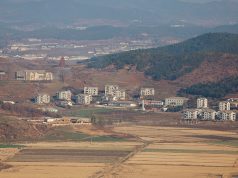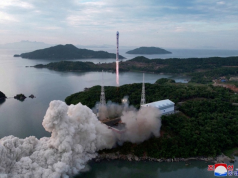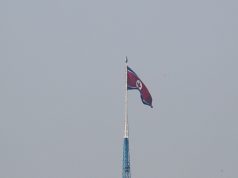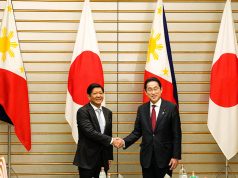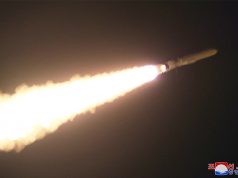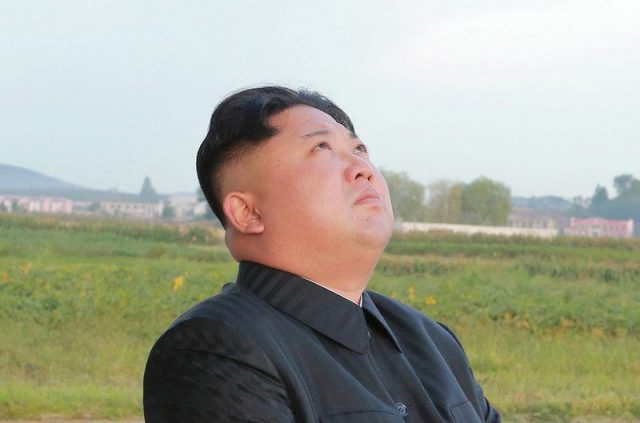
SEOUL/UNITED NATIONS — The United States warned North Korea’s leadership it would be “utterly destroyed” if war were to break out, after Pyongyang test fired its most advanced intercontinental ballistic missile, putting the U.S. mainland within range.
The Trump administration has repeatedly said all options were on the table in dealing with North Korea’s ballistic and nuclear weapons program, including military ones, but that it still prefers a diplomatic option.
Still, speaking at an emergency U.N. Security Council meeting, U.S. ambassador Nikki Haley warned:
“We have never sought war with North Korea, and still today we do not seek it. If war does come, it will be because of continued acts of aggression like we witnessed yesterday … And if war comes, make no mistake, the North Korean regime will be utterly destroyed.”
Haley said the United States has asked China to cut off oil supply to North Korea, a drastic step that Beijing – the North’s neighbor and sole major trading partner – has so far refrained from doing. Trump and Chinese President Xi Jinping talked on the phone earlier on Wednesday.
“Just spoke to President Xi Jinping of China concerning the provocative actions of North Korea. Additional major sanctions will be imposed on North Korea today. This situation will be handled!” Trump wrote on Twitter.
Previous U.S. administrations have failed to stop North Korea from developing nuclear weapons and a sophisticated missile program. Trump has also struggled to contain Pyongyang since he came to office in January.
Urging China to use its leverage on Pyongyang and promising more sanctions against North Korea are two strategies that have borne little fruit so far.
In a speech in Missouri about taxes, Trump, who has traded insults with the North in the past, referred to North Korean leader Kim Jong Un with a derisive nickname. “Little Rocket Man. He is a sick puppy,” Trump said.
FAR INTO SPACE
North Korea, which conducted its sixth and largest nuclear bomb test in September, has tested dozens of ballistic missiles under Kim’s leadership in defiance of international sanctions.
Pyongyang has said its weapons programs are a necessary defense against U.S. plans to invade. The United States, which has 28,500 troops in South Korea as a legacy of the 1950-53 Korean War, denies any such intention.
Russia’s U.N. Ambassador Vassily Nebenzia called on North Korea on Wednesday to stop its weapons tests and for the United States and South Korea not to hold military drills in December as it would “inflame an already explosive situation.”
North Korea said the new missile soared to an altitude of about 4,475 km (2,780 miles) – more than 10 times the height of the International Space Station – and flew 950 km (590 miles) during its 53-minute flight.
It flew higher and longer than any North Korean missile before, landing in the sea near Japan.
Photos released by North Korean state media appeared to show a missile being positioned on the launch site by a mobile vehicle, designed to allow the missile to be fired from a wider number of areas to prevent it being intercepted before launch.
Kim is shown laughing and smiling with officials both next to the missile as it is readied, and in a control booth. The launch itself shows the missile lifting off amid smoke and fire, with Kim watching from a field in the distance.
U.S. intelligence analysts have concluded from satellite and other data that the test missile was fired from a fixed position, not a mobile launcher, three U.S. officials said.
Two of the officials said the test appears to demonstrate a more powerful North Korean solid-fuel propulsion system, especially in its second stage rocket.
The photos also revealed a larger diameter missile, which could allow it to carry a larger warhead and use a more powerful engine, said David Wright of the Union of Concerned Scientists, a U.S.-based nonprofit science advocacy group.
MORE SANCTIONS LIKELY
Pyongyang claimed it had “finally realized the great historic cause of completing the state nuclear force”.
Three U.S. intelligence analysts said they were trying to assess whether the remarks meant Kim might now be open to a longer halt in testing in order to reopen negotiations that might help prevent, or at least defer, the imposition of additional sanctions.
The officials also noted, however, that North Korea has not proved it has an accurate guidance system for an intercontinental ballistic missile or a re-entry vehicle capable of carrying a nuclear warhead and surviving a return from space through Earth’s atmosphere, meaning further tests would be needed.




